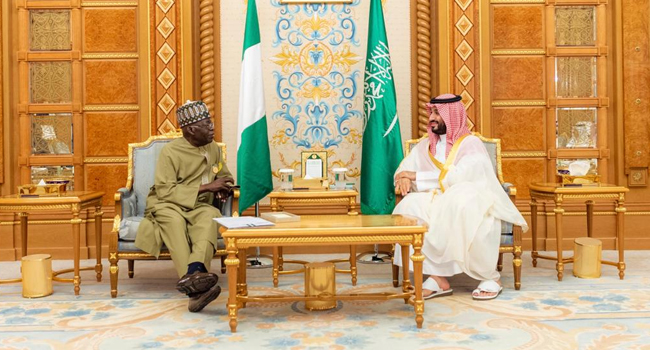The Saudi Arabian government has promised to invest in the revamping of Nigeria’s refineries, according to the Minister of Information and Communication Mohammed Idris.
Nigeria has three refineries, none of which are active. While the Dangote Refinery was commissioned earlier this year, it has yet to begin operations.
However, the minister stated that following a bilateral meeting between President Bola Tinubu and Saudi Crown Prince HRH Mohammed bin Salman, the Arab government “promised to invest in the revamp of Nigeria’s refineries, as well as provide financial support to sustain the government’s foreign exchange reforms.”
The duo met on the sidelines of the Saudi-Africa Summit in Riyadh, Mohammed said in a late Friday statement.
“To support the Central Bank’s ongoing reforms of Nigeria’s foreign exchange regime, the Saudi Government will make available a substantial deposit of foreign exchange to boost Nigeria’s forex liquidity,” he said.
“The Crown Prince hinted that the refinery investments in Nigeria will be led by the Saudi state-owned oil company, Saudi Aramco, with the revamp to be completed within a two- to three-year timeframe,” the statement added.
The minister quoted Prince bin Salman as commending Tinubu for the economic reforms undertaken since his assumption of office about six months ago.
He is expressing his support for these reforms, the minister added.
“In addition to these, Prince bin Salman also highlighted Agriculture and Renewable Energy as areas of investment interest for Saudi Arabia, in Nigeria, to help the country attain food and energy security, respectively,” the information minister said.
The Crown Prince also expressed appreciation to Nigeria for its active participation in and support for OPEC+.
During the meeting, President Tinubu and Crown Prince bin Salman also spoke on the need to strengthen security cooperation to mitigate terrorism, illegal migration, and other crises, not just in Nigeria, but across West Africa and the Sahel region.


